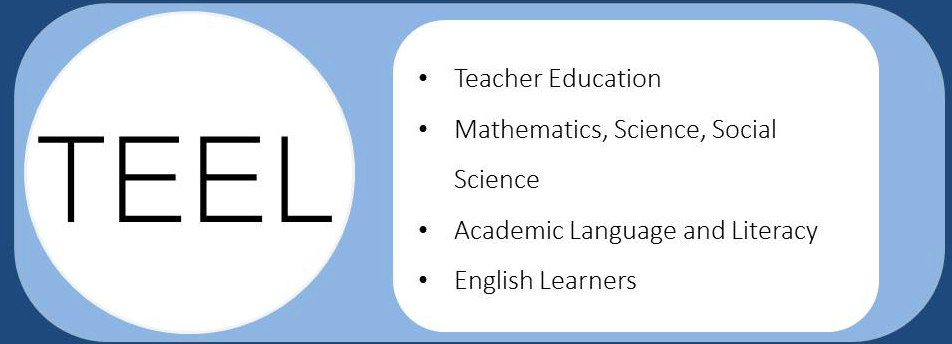To study the efficacy of the model and potential for scale-up in California and nationally, TEEL researchers are studying the implementation of the TEEL model at seven sites in California, Arizona, and Texas. The TEEL projects use a research design that responds to the gap in the research literature in the area of large-scale, mixed-methods empirical studies that provide definitive information on the efficacy and generalisability of educational interventions. The research uses a quasi-experimental design to compare the development of the knowledge, beliefs, and practices of pre-service and beginning teachers in the TEEL experimental programs with those of control group student teachers in the un-restructured control group teacher education programs. The mixed methods study uses pre-and post- surveys, interviews, and classroom observation of student teachers and faculty in the control and experimental conditions to examine program impact. Comparisons between the seven sites are used to examine potential for scale-up.
Alignment of constructs on instruments.
Quasi-experimental design with baseline control.
To study the efficacy of the model and potential for scale up in California and nationally, TEEL researchers are studying the implementation of the TEEL model at seven sites in California, Arizona and Texas.
